This article was co-authored by Roy Nattiv, MD. Dr. Roy Nattiv is a Board-Certified Pediatric Gastroenterologist in Los Angeles, California. With over 20 years of experience he specializes in a broad range of pediatric gastrointestinal and nutritional illnesses such as constipation, diarrhea, reflux, food allergies, poor weight gain, SIBO, IBD, and IBS. He completed his pediatric residency at the Children’s Hospital at Montefiore, Albert Einstein College of Medicine in New York, and his fellowship at the University of California, San Francisco (UCSF). While at UCSF, he was a California Institute of Regenerative Medicine (CIRM) fellowship trainee and was awarded the North American Society for Pediatric Gastroenterology, Hepatology, and Nutrition (NASPGHAN) Fellow to Faculty Award in Pediatric IBD Research. Dr. Nattiv received his undergrad degree from the University of California, Berkeley, and his medical degree (MD) from the Sackler School of Medicine in Tel Aviv, Israel.
There are 12 references cited in this article, which can be found at the bottom of the page.
This article has been viewed 478,509 times.
For many people who experience nausea, it’s related to morning sickness during pregnancy or reactions to chemotherapy for cancer, yet there are many other causes, and sometimes food, a stomach flu, or stress can causes nausea, particularly at night before bed.[1] Nausea at night can make falling asleep difficult, but there are a number of ways you can alleviate it so that you can sleep soundly and wake up refreshed.
Steps
Easing the Symptoms of Nausea
-
1Try acupressure. Targeting the pressure point that eases motion sickness can keep nausea away. This point is the Pericardium 6 (PC6), located on your wrist. Find it by placing three fingers at the crease of your wrist with your palm up. This area on the inside of your arm/wrist can be targeted through pressure from your fingers.[2]
-
2Use motion sickness bands. These bands, designed to use acupressure to keep you from experiencing motion sickness, are often available at drugstores or travel stores. They are typically a small sweatband that goes around your wrist at the PC6 with a half of a small ball attached to keep constant pressure.[3]Advertisement
-
3Use aromatherapy oils. Lavender and peppermint are those most associated with calming the stomach and helping nausea. You can use them as essential oils and put them on your wrists, or on a soothing face mask. You could also try them as candle scents.
-
4Avoid strong smells. Sometimes there are particular smells that can trigger nausea. These might be from food, strong perfume, or rotting or decaying smells. Keep your area well-ventilated (particularly the kitchen and eating area) to combat this.[4]
Eating to Help Nausea
-
1Attempt to eat the BRAT diet. Bananas, rice, applesauce, and toast are the foods that have been proven to help prevent diarrhea, but can also help symptoms of nausea and vomiting. The BRAT diet is not meant to be used long-term, as it does not provide necessary nutrients to your body. Once your nausea has subsided, you should start adding in fresh fruits and vegetables and then return to your normal diet.[5]
-
2Try bland foods. If the BRAT diet is too restrictive, you can add bland foods into the mix. [6] Nausea can often be made worse by spicy foods. Even if food doesn’t sound good, attempt to eat some saltine crackers or bread to try and help settle your stomach.
-
3
-
4Choose multiple small meals a day. Even if your nausea typically occurs at night, eating more frequent, small meals can help prevent nausea. Keeping your stomach mostly full might also help prevent nausea from becoming more severe.[9]
-
5Stay away from foods that are greasy, fatty, or spicy.[10] These tend to exacerbate nausea. Your body can also have more difficulty processing these foods. It’s best to aim for light and healthy foods (fresh fruits and vegetables) that can keep your body working smoothly.
Drinking to Help Nausea
-
1
-
2Try tea. Many doctors recommend ginger or peppermint tea as a remedy for nausea. The teas and their scents can help calm your stomach. You can also try either flavor in different forms — ginger in foods is common, and peppermint candies can also help.[13]
-
3See if carbonated beverages help. Many people find that the bubbles of carbonation can help an upset stomach. Choose ginger ale or citrus-flavored carbonated beverages. Use sparingly, since soda is not very healthy. A small glass can sometimes help, often coupled with some crackers or other bland food.[14]
Visiting the Doctor for Nausea
-
1Try doctor-prescribed medicine. Some nausea is only going to respond to medication.[15] Follow the treatment regimen described by your doctor. Watch for side effects — many anti-nausea medications cause drowsiness.[16]
- Prochlorperazine is the most commonly used anti-nausea medication. It is moderately effective for nausea and other GI disorders, but not as effective for chemotherapy-induced nausea.
- Metoclopramide and ondansetron are two other anti-nausea medications your doctor may prescribe.
- Always follow your doctor's instructions on dosage and duration of medication.
-
2Consider marijuana if it's legal. If you live in a state where medical marijuana is legal, chances are that many doctors prescribe it for the nausea that can accompany chemotherapy. Many studies have shown that it can be an effective treatment for nausea. Keep in mind that marijuana comes in many forms — a candy or other edible form might be a good choice. Talk to your medical professional about a possible prescription.[17]
- Unfavorable side effects of include vertigo, dry mouth, low blood pressure, and depression.
-
3Go to the doctor for severe recurring nausea. If you have experienced nausea for over a month and if your vomiting has lasted more than two days, you should see your doctor. Also go if you have unexplained weight loss. Your doctor will be able to help you, and might include a different diet or even medication.[18]
-
4Monitor your symptoms. Extreme nausea coupled with other symptoms might mean you need to take a trip as soon as possible to your doctor or a clinic. Take prompt action if nausea is accompanied by:[19]
- Chest pains
- High fever
- Cramping
- Fecal odor in your vomit
- Fainting
- Confusion
- Blurred vision
- You can keep a vomiting diary if you have cyclic vomiting syndrome.[20]
- Note the triggers for the vomiting episodes, such as the things you ate, drinks you took, or the activities you engaged in before the episode.[21]
- Anxiety can also cause vomiting episodes.[22]
-
5Seek immediate medical attention for some symptoms coupled with nausea. This would mean a trip to the emergency room or an immediate appointment at your doctor’s office. Watch for these symptoms, together with nausea, because they can be serious.
- Pain or a headache (like you’ve never had before)
- You can’t keep food or drink down for 12 hours
- Your vomit is green, bloody, or looks like coffee grounds
- You have symptoms of dehydration (extreme thirst, dark urine, dizziness, etc.)
Expert Q&A
Did you know you can get expert answers for this article?
Unlock expert answers by supporting wikiHow
-
QuestionCan you treat frequent nausea without medication?
 Peter Gardner, MDPeter W. Gardner, MD is a board certified physician who has practiced Gastroenterology and Hepatology for over 30 years. He specializes in diseases of the digestive system and liver. Dr. Gardner earned his Bachelor’s degree from the University of North Carolina and attended Georgetown Medical School. He completed his residency in Internal Medicine and then his fellowship in Gastroenterology at the University of Connecticut. He is a previous Chief of Gastroenterology at Stamford Hospital and remains on the staff. He is also on the staff of Greenwich Hospital and New York (Columbia) Presbyterian Hospital. Dr. Gardner is an Approved Consultant in Internal Medicine and Gastroenterology with the American Board of Internal Medicine.
Peter Gardner, MDPeter W. Gardner, MD is a board certified physician who has practiced Gastroenterology and Hepatology for over 30 years. He specializes in diseases of the digestive system and liver. Dr. Gardner earned his Bachelor’s degree from the University of North Carolina and attended Georgetown Medical School. He completed his residency in Internal Medicine and then his fellowship in Gastroenterology at the University of Connecticut. He is a previous Chief of Gastroenterology at Stamford Hospital and remains on the staff. He is also on the staff of Greenwich Hospital and New York (Columbia) Presbyterian Hospital. Dr. Gardner is an Approved Consultant in Internal Medicine and Gastroenterology with the American Board of Internal Medicine.
Board Certified Gastroenterologist
-
QuestionHow can you avoid cyclic vomiting?
 Roy Nattiv, MDDr. Roy Nattiv is a Board-Certified Pediatric Gastroenterologist in Los Angeles, California. With over 20 years of experience he specializes in a broad range of pediatric gastrointestinal and nutritional illnesses such as constipation, diarrhea, reflux, food allergies, poor weight gain, SIBO, IBD, and IBS. He completed his pediatric residency at the Children’s Hospital at Montefiore, Albert Einstein College of Medicine in New York, and his fellowship at the University of California, San Francisco (UCSF). While at UCSF, he was a California Institute of Regenerative Medicine (CIRM) fellowship trainee and was awarded the North American Society for Pediatric Gastroenterology, Hepatology, and Nutrition (NASPGHAN) Fellow to Faculty Award in Pediatric IBD Research. Dr. Nattiv received his undergrad degree from the University of California, Berkeley, and his medical degree (MD) from the Sackler School of Medicine in Tel Aviv, Israel.
Roy Nattiv, MDDr. Roy Nattiv is a Board-Certified Pediatric Gastroenterologist in Los Angeles, California. With over 20 years of experience he specializes in a broad range of pediatric gastrointestinal and nutritional illnesses such as constipation, diarrhea, reflux, food allergies, poor weight gain, SIBO, IBD, and IBS. He completed his pediatric residency at the Children’s Hospital at Montefiore, Albert Einstein College of Medicine in New York, and his fellowship at the University of California, San Francisco (UCSF). While at UCSF, he was a California Institute of Regenerative Medicine (CIRM) fellowship trainee and was awarded the North American Society for Pediatric Gastroenterology, Hepatology, and Nutrition (NASPGHAN) Fellow to Faculty Award in Pediatric IBD Research. Dr. Nattiv received his undergrad degree from the University of California, Berkeley, and his medical degree (MD) from the Sackler School of Medicine in Tel Aviv, Israel.
Board Certified Gastroenterologist
-
QuestionWhich foods usually trigger cyclic vomiting episodes?
 Roy Nattiv, MDDr. Roy Nattiv is a Board-Certified Pediatric Gastroenterologist in Los Angeles, California. With over 20 years of experience he specializes in a broad range of pediatric gastrointestinal and nutritional illnesses such as constipation, diarrhea, reflux, food allergies, poor weight gain, SIBO, IBD, and IBS. He completed his pediatric residency at the Children’s Hospital at Montefiore, Albert Einstein College of Medicine in New York, and his fellowship at the University of California, San Francisco (UCSF). While at UCSF, he was a California Institute of Regenerative Medicine (CIRM) fellowship trainee and was awarded the North American Society for Pediatric Gastroenterology, Hepatology, and Nutrition (NASPGHAN) Fellow to Faculty Award in Pediatric IBD Research. Dr. Nattiv received his undergrad degree from the University of California, Berkeley, and his medical degree (MD) from the Sackler School of Medicine in Tel Aviv, Israel.
Roy Nattiv, MDDr. Roy Nattiv is a Board-Certified Pediatric Gastroenterologist in Los Angeles, California. With over 20 years of experience he specializes in a broad range of pediatric gastrointestinal and nutritional illnesses such as constipation, diarrhea, reflux, food allergies, poor weight gain, SIBO, IBD, and IBS. He completed his pediatric residency at the Children’s Hospital at Montefiore, Albert Einstein College of Medicine in New York, and his fellowship at the University of California, San Francisco (UCSF). While at UCSF, he was a California Institute of Regenerative Medicine (CIRM) fellowship trainee and was awarded the North American Society for Pediatric Gastroenterology, Hepatology, and Nutrition (NASPGHAN) Fellow to Faculty Award in Pediatric IBD Research. Dr. Nattiv received his undergrad degree from the University of California, Berkeley, and his medical degree (MD) from the Sackler School of Medicine in Tel Aviv, Israel.
Board Certified Gastroenterologist
References
- ↑ Peter Gardner, MD. Board Certified Gastroenterologist. Expert Interview. 25 August 2020.
- ↑ http://www.cancercenter.com/discussions/blog/using-natural-remedies-to-treat-cancer-patients-with-nausea/
- ↑ http://www.sea-band.com/
- ↑ http://www.mayoclinic.org/symptoms/nausea/basics/when-to-see-doctor/sym-20050736
- ↑ http://familydoctor.org/familydoctor/en/prevention-wellness/food-nutrition/weight-loss/brat-diet-recovering-from-an-upset-stomach.html
- ↑ https://medlineplus.gov/ency/patientinstructions/000068.htm
- ↑ Peter Gardner, MD. Board Certified Gastroenterologist. Expert Interview. 25 August 2020.
- ↑ https://my.clevelandclinic.org/health/diseases/9617-heartburn-overview
- ↑ http://www.cancercenter.com/discussions/blog/using-natural-remedies-to-treat-cancer-patients-with-nausea/
- ↑ Peter Gardner, MD. Board Certified Gastroenterologist. Expert Interview. 25 August 2020.
- ↑ Peter Gardner, MD. Board Certified Gastroenterologist. Expert Interview. 25 August 2020.
- ↑ http://www.home-remedies-for-you.com/remedy/Nausea.html
- ↑ http://www.cancercenter.com/discussions/blog/using-natural-remedies-to-treat-cancer-patients-with-nausea/
- ↑ http://www.mayoclinic.org/diseases-conditions/morning-sickness/basics/lifestyle-home-remedies/con-20033445
- ↑ Peter Gardner, MD. Board Certified Gastroenterologist. Expert Interview. 25 August 2020.
- ↑ https://www.drugs.com/condition/nausea-vomiting.html
- ↑ http://medicalmarijuana.procon.org/view.answers.php?questionID=000137
- ↑ http://www.mayoclinic.org/symptoms/nausea/basics/when-to-see-doctor/sym-20050736
- ↑ http://www.mayoclinic.org/symptoms/nausea/basics/when-to-see-doctor/sym-20050736
- ↑ Roy Nattiv, MD. Board Certified Gastroenterologist. Expert Interview. 14 October 2020.
- ↑ Roy Nattiv, MD. Board Certified Gastroenterologist. Expert Interview. 14 October 2020.
- ↑ Roy Nattiv, MD. Board Certified Gastroenterologist. Expert Interview. 14 October 2020.
About This Article
To overcome nausea at night, try drinking some ginger or peppermint tea before bed, which can help alleviate nausea. You can also try sipping on ginger ale or a citrus-flavored soda since carbonated beverages can help with an upset stomach. Also, avoid eating right before bed since laying down with a full stomach can make you nauseous. You should also try to avoid greasy, fatty, or spicy foods, which make nausea worse. For more tips from our Medical co-author, like how to overcome nausea using essential oils, read on!

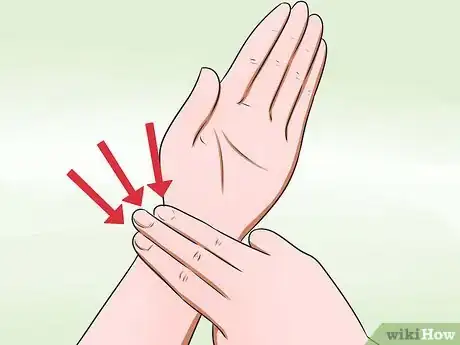
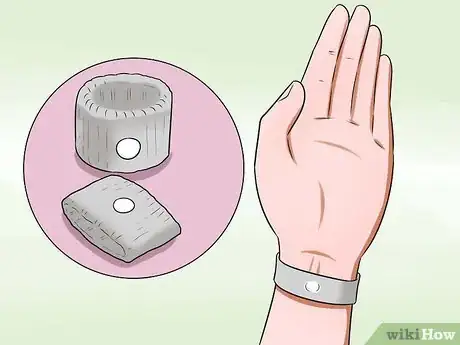

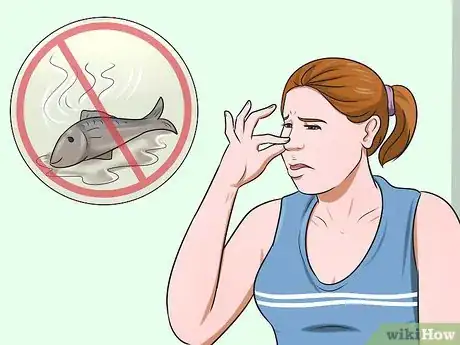
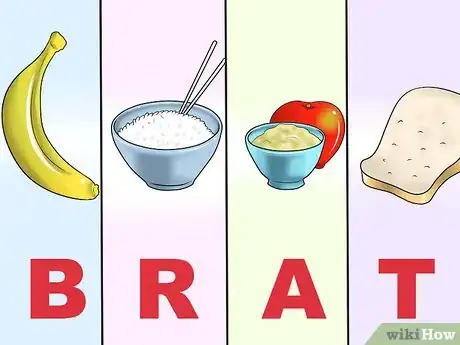
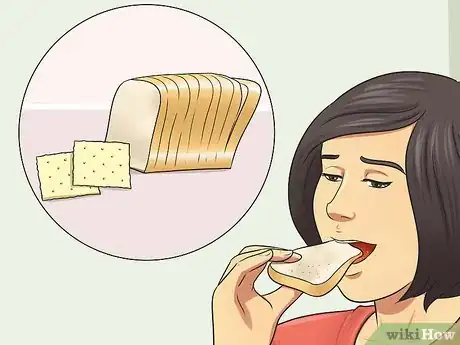

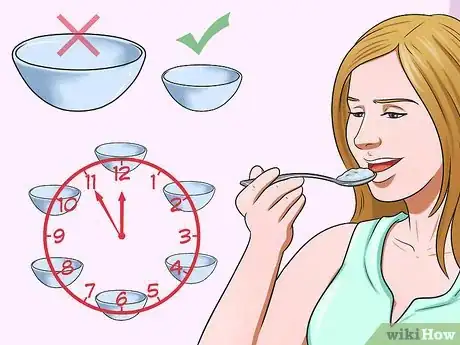
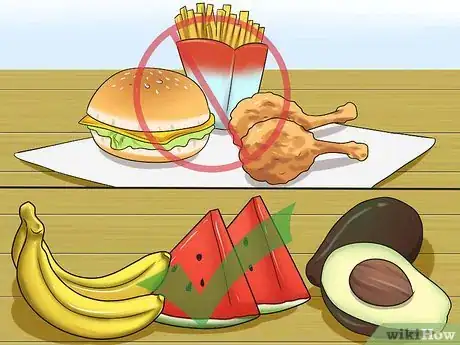



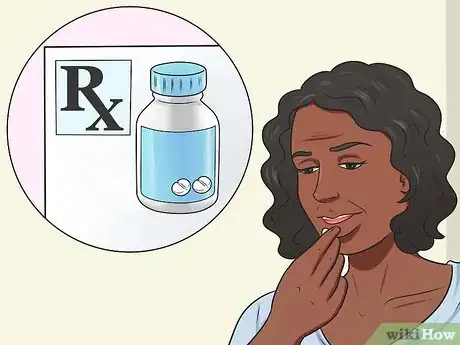


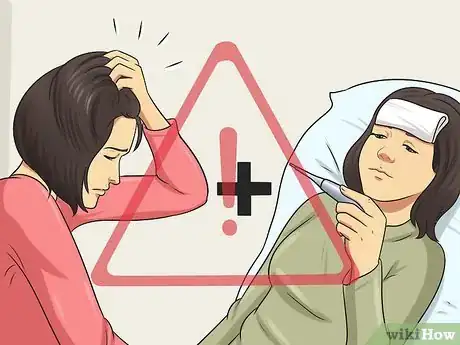

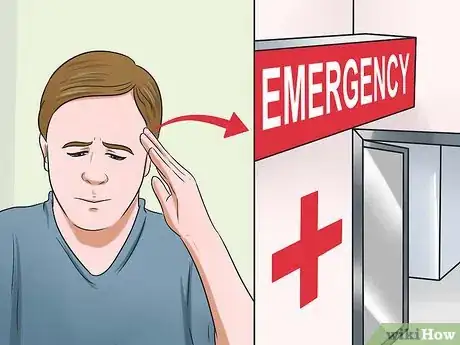

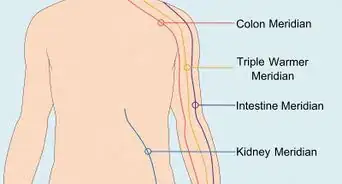
-Step-15-Version-2.webp)


-Step-9-Version-5.webp)



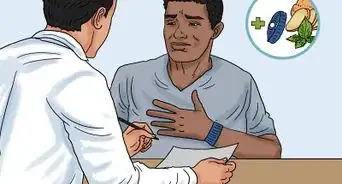












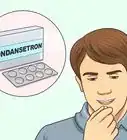
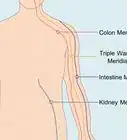
-Step-15-Version-2.webp)



































Medical Disclaimer
The content of this article is not intended to be a substitute for professional medical advice, examination, diagnosis, or treatment. You should always contact your doctor or other qualified healthcare professional before starting, changing, or stopping any kind of health treatment.
Read More...